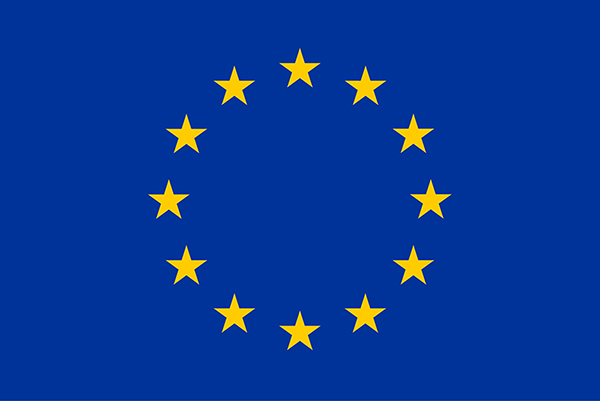General Help
Read more about Staging EUTeens4Green
Safeguarding children and young people Protection Policy
Objective. This document presents EUTeens4Green consortium policy on identifying and responding to concerns regarding the safeguarding and protection of children and young people (under 18), within the provision of services and implementation of project activities. It includes procedures and it guides all staff (and volunteers when applicable) who may come across concerns of this nature within the context of their activities. The main objective of this policy is to contribute to the personal safety of all children and vulnerable individuals through actively promoting awareness, good practice and sound procedures.
Implementation. The Management shall appoint one of their members as responsible for all aspects of child protection awareness and implementation of this policy (Safeguard Officer – SO). The SO will be responsible to the Management for:
- implement this policy throughout the project's activities where applicable;
- ensure that all necessary child protection-related enquiries, procedures and investigations are carried out;
- report the results of screening enquiries and for preserving a "need to know" level of confidentiality and access to secure records;
- ensure secure and confidential records related to child protection matters;
- liaise with the Project Manager and Coordinator (PMC) and technical staff of the project to ensure policy implementation by all staff and volunteers at the project level;
- liaison with social services at a formal and informal level on child protection matters, likewise with the police;
- report allegations and suspicion of abuse to the appropriate authorities;
- endure there is adequate induction and training relating to child protection matters;
- check all incident reports made by staff and volunteers, countersigning them, and making such reference to authority as is appropriate, after consultation with the PMC as detailed below.
The PMC shall ensure active compliance with this policy by all working in the project, and shall work closely with the SO to ensure this, affording the SO every assistance to this end. All other officers, staff and voluntary workers of the project will actively endeavour to implement this policy.
Personnel Checks. To assure that all staff and volunteers working with SERN in activities involving children and young people is as safe to do so in child protection terms as can be guaranteed. To assure this, the SO is responsible for ensuring that the following procedures are carried out:
- Criminal Record check at enhanced level;
- General Practitioner of the applicant;
- Personal referee, nominated by the applicant.
Written consent of the employee/volunteer must be obtained to enable such enquiries to be made. No process may proceed unless such consent is given by the applicant. The enquiry forms and authorities will be completed at an interview with the applicant, by the SO in consultation with the PMC. The employee/volunteer may request this be done in confidence with only the SO present:
- at the interview stage, the SO shall give to the employee/volunteer, and get the employee/volunteer to give written confirmation of receipt a letter/notice stating the checks are required as a condition of working in project activities with children and young people;
- no employee/volunteer may start sessions unsupervised without the above enquiries being completed, but the PM may, in consultation with the SO, authorise an employee/volunteer to commence supervised (one-to-one basis) work where it is absolutely clear there will be no problems arising from the checks;
- the SO shall be responsible for sending the enquiries to their destinations, under a strictly confidential heading in all cases, and shall ensure the security of records;
- at all times the onus is on the employee/volunteer to reveal any conviction, caution, bind-over, probation order, or pending prosecution, whether imposed before or within the period the applicant works on project activities;
- the employee/volunteer shall produce proof of identity (where applicable);
- the SO will not accept any previous reference, police check, social services endorsement etc. provided by an employee/volunteer in substitution for the above enquiry process. At all times the initiative must lie with the project to make its own, completely independent enquiries.
At least every 3-years a recheck on the above standards will be done by the SO and PMC.
Reporting of Inquiry Results
- The SO will communicate to the PMC whether an employee/volunteer is suitable/unsuitable to work on project activities, as revealed by the results of the checks described above. The SO shall also inform the Management of SERN+ of such results and the PMC might also be invited to provide his/her opinion on the employee/volunteer in terms of child protection. The Management shall consider the SO's recommendation and their decision shall be recorded in the minutes;
- if an offence is indicated by the above checks the SO will rule an employee/volunteer unsuitable, and that person must not undertake any form of work or help with the project;
- if the unsuitable employee/volunteer attempts to undertake any form of work or help with the project, The SO shall immediately inform Social Services and the Police;
- an interview will be promoted by the SO with the PMC, Management and employee/volunteer where the SO will show the employee/volunteer all replies received. If any discrepancy is revealed between the employee/volunteer statements and the replies must be investigated thoroughly with the employee/volunteer by the SO and the PMC especially as regards dates of residence, employment, voluntary work, past offences and convictions. In particular, the employee/volunteer should be advised as to the necessary procedures s/he can take if s/he queries the accuracy of a reference or check. The replies given may be taken into account by the SO, in consultation with the PMC, in making a recommendation to the Management;
- where an employee/volunteer declines to attend such an interview the SO shall write to inform him/her that their application has not been successful;
- the SO shall be authorised to undertake any additional enquiries as sanctioned by the employee/volunteer as may assist the making of a recommendation to the Management.
Personnel Records. The SO shall maintain a confidential file on each c in which shall be kept:
- copies of all forms, consents and replies;
- a progress check form indicating the progress of the checks and replies.
The file of an unsuccessful employee/volunteer shall be kept for six months and then safely destroyed by the SO - likewise for a successful employee/volunteer who declines to commence with the project - this period will be increased to 12 months from the date of leaving the project's service for any successful employee/volunteer who commences work with the project.
Anyone working with the project has the right to inspect their confidential records and may do so on request to the SO who shall not withhold consent unreasonably and will do so within one working day. The SO may only withhold such agreement and access if to do so might jeopardise a project or police or social services investigation relating to child protection matters or might lead to a child's welfare and safety being compromised. The SO need to give no reason for such withholding of consent. S/he will report such a situation to the Management, purely on the lines that a request was made and refused for reasons relating to the welfare of children.
The PM may have access to such records as described above, with the caveat as explained above applying.
Activities. Before any activity being commenced, the SO shall ensure that adequate child protection procedures are in place. In consultation with the PMC, the SO shall ensure a site audit is undertaken to ascertain the layout of premises/site, helpers and supervision required to achieve adequate personal safety of children and young people. The audit shall be undertaken with a view to recognising any problems in terms of, for example, supervision of helpers, extended sites creating communications concerns etc. There may be a need to audit an existing site etc. if, in the opinion of the SO and/or the PM there have been significant changes since the last use of that site.
Regarding implementation, the following aspects shall be kept in mind:
- As a basic principle, no helper should work with less than 3 children on their own for any period longer than 10 minutes, and where possible each room should have two or more helpers and/or regular visits, at not less than 5 minutes intervals;
- all sessions shall be conducted with the provisions, aims and objectives of this policy in mind;
- every activity shall be undertaken with the possibility in mind that a child may be suffering abuse outside the project, that disclosure or symptom relating to this may become apparent within a project activity, or that there will be children present who have not as yet revealed they are being abused. The environment created for project activity must be as conducive to the support of a child in such a situation as is possible;
- for their protection, but mainly as good practice and good manners, helpers are advised that children should initiate physical contact with helpers - this will not apply e.g. where a child needs to be removed from a situation threatening its or others' safety.
Reporting of concerns. Those working on project activities must ensure that any suspicion, incident, allegation or other manifestation relating to child protection is reported. The disclosure or evidence for concern may occur in any number of ways: by what a child says (about itself or another child or children); through interception of a written item; through observation of activity or behaviour giving cause for concern. It may be through changes in behaviour or attitude. There may be physical, emotional pointers such as bruising, staining, inappropriate behaviour or knowledge. These and many other signs can be picked up by the employee/volunteer.
It is vital for the successful operation of this policy that all incidents, observations, however insignificant-seeming, are logged by the observer(s) in the appropriate accident and incident report book/forms:
- The observing employee/volunteer shall make a verbal report to the responsible for the activity or session taking place and a written report outlining in adequate detail what was heard, seen, reported, alleged etc. Verbatim quotes from a child are important, as is the retention of anything which gave cause for concern such as a drawing, painting, writing etc.
- important to refer that before reporting the observing employee/volunteer shall communicate with the activity/session leader after the closure of the day to discuss the matter;
- the activity or session leader will countersign the report and as short as possible (end of the session or, cat the latest, the next working morning), will draw the attention of the PMC to the report. The PM shall then read the report and provide its comments or recommendations, and pass it to the SO who also will read and countersign, completing the form with comments etc., as appropriate;
- the PM will ensure the SO has as much background, supplementary detail about a child or an incident as possible. The SO will keep records in such a way as will enable appropriate cross-referencing of reports. The object is that any persistent pattern is identified as soon as possible;
- more than one observing employee/volunteer might observe in the same day/moment the same incident. In such a case, each one shall submit its report and both will be analysed as described above;
- after analysis of the report and discussion with the involved staff/volunteers, the PMC and SO shall make the necessary arrangements to meet the relevant people together as soon as possible. Where possible, but advisable always, the PM and the SO shall remain involved in following the process. The SO will record his/her decision by a memorandum, copy to the PMC and copy filed in the appropriate restricted files.
- In the evidence of actions to be taken, the SO shall:
- Immediate Report to the competent authority any situation where it is perceived to be an immediate danger to a child or detection of criminal offences against a child or other form of obvious, ongoing/future/recent serious harm;
- where a child seems at imminent harm of danger/injury or worse, then the SO is authorised to make a complaint to the Police to secure immediate action and protection of a child and call the competent medical staff;
- in situations not so severe, the SO shall raise them informally with a designated liaison contact at Social Services or child protection services. The SO will always strive to ensure that there is such an informal liaison arrangement so that concerns can be discussed informally and regularly. It will be appropriate at such informal meetings for all recent reports to be copied to the liaison person.
Feedback and Reporting. Staff/volunteers will always wish to be assured that, having made a report, appropriate action has been taken, thus both the SO and PM shall always give feedback as shortly as possible and where possible. In some cases, however, the SO and PM might, for confidentiality reasons after reporting the situation to the authorities, be limited in the feedback to provide.
In regular internal reports to the Top Management, the SO shall report:
- All new staff/volunteer results of the police and other checks: the person's name and whether the checks were satisfactory or not (but without giving detail) and the PMC will confirm this information. The Management will then decide upon each recommendation and their decisions will be recorded in the minutes as to whether agreed or not;
- any formal or informal report to the authorities (omitting children's and families' names).
Allegations against Workers and/or Management. If a child or parent makes allegations to the Project against any person working for the Project, whether paid or unpaid or a member of the Management, the following procedure will come into force - incident reports will be made at all stages as appropriate:
- The person receiving the complaint will contact the PMC who will at once contact the nominated Trustee. The Trustee will contact the SO. On receipt of the complaint, the SO will contact the competent authorities to appraise them of the situation (normally by informal channels but if there is a criminal allegation, the contact will be formal);
- the Trustee should inform the person against whom an allegation has been made as soon as possible unless there appears to be a case that this might prejudice a criminal investigation;
- the course of action to be taken from thereon will be decided by the nature of the allegation(s).
- if a criminal allegation is made a Disciplinary Procedure will be activated and the worker/volunteer shall be suspended from any activity in the project and the company. An incident report will be made and treated as confidential;
- if there is no criminal allegation the SO will gather as much detail from available sources of information as possible, by way of investigation, but not including seeking to interview any child if there is a criminal allegation (which is a matter for the authorities), and should consider whether suspension of the worker/volunteer is advisable and recommend accordingly to the Trustee;
- the SO will report to the Trustee on the outcome of such an investigation and will recommend whether the circumstances constitute grounds either: to treat the matter as a disciplinary issue, either as misconduct or gross misconduct, with associated rights of appeal; or to dismiss the allegations as unfounded, or to make such other non-disciplinary recommendations as are appropriate. The Top Managers shall consider such recommendations and report to the next meeting of the Management of action taken;
In the situations above, if legal proceedings result in the conviction of the person for a serious offence involving a child, the Trustee shall consider any report or information from the police and /or social services and shall recommend to the directors the appropriate course of action up to and including instant dismissal.
The person against whom such non-criminal allegations are made should have the opportunity to give an explanation or answer to any allegation at an interview conducted by the SO and the course of such an interview should be minuted by the PMC who should be present.
Under no circumstances is any person suspended to re-enter project premises or property or attend a session site whilst under suspension. This prohibition includes any other activities where there are no children/young persons present.
Induction and Training. SERN shall ensure that there is adequate and appropriate induction and ongoing training and information to all employed staff and voluntary workers concerning child protection matters. All directors, employees and voluntary workers shall have this policy drawn to their attention on joining the project and it shall be the duty of the PMC, in consultation with the SO, to ensure that such persons are fully aware of how and where to access the full policy statement and that the PM is the person through whom they should route queries concerning the policy.
Review of this policy. The Management shall review this policy, its effectiveness, and its implementation every 3-years and the SO shall ensure with the PM that the views of all workers, paid and voluntary, are sought and reflected in such a review process and that any statutory authority input is sought as appropriate.
_cropped.png)






